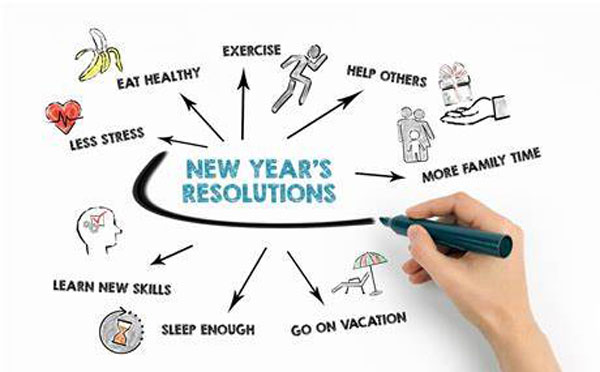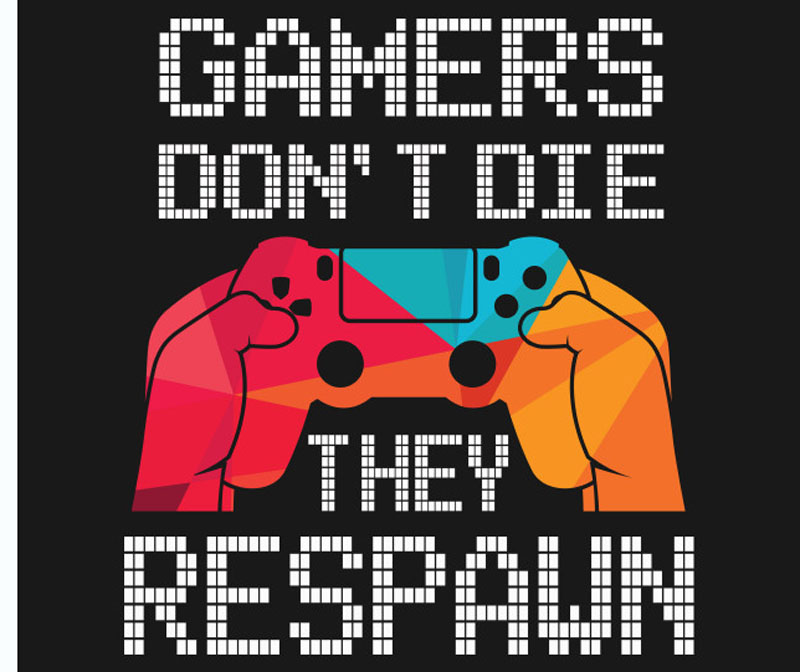Death to the New Year’s Resolution
“Only those who dare to fail greatly, can ever achieve greatly.”
– Robert F. Kennedy, Senator
January 1st 2023 is one month ago today. That day was the first day of most Americans hallowed and yet guilt-inducing tradition, the New Year’s Resolution.
So, how’d it go?
If you are like most Americans (78%, according to Statista) you either haven’t kept your resolution, never made one, or aren’t sure if you kept your resolution (5%) which is the most hilarious statistic of all. That must have been one fun New Year’s Eve to not be sure of your resolution.
Bummed? Take heart!
It’s a new month, a new first day! That’s why we here at KeithKarabin.com, held this article for the first day of February rather than the last Friday in January. It’s time to look our dead-too-soon New Year’s Resolution in the face and, with an open heart, be totally glad it died. Because now it can live again. It—and we—can “respawn” just like in the best video games.
Seriously. We know I’m a life-long gamer and a psychotherapist. Over the years I’ve gotten more into game design psychology, both because of a desire to be aware of how my dopamine buttons are being manipulated by programmers and because of the many studied and documented benefits of video games. I could write a whole article on that and maybe one day I will. For this piece though we’re focusing on one addictive video game dynamic; making failure fun so that we will hit “restart” again. And again.
The trick of making failure fun is all in the mind of the player. Did we miss jumping on that ledge by a tiny smidge? Try again. Did we almost have the puzzle solved right before the timer ran out? Try again. Did we almost have the end-boss beaten but missed our killer combo by one button. Try again! The player is always learning from something that is perceived as—not a total failure—but a present non-success. That kernel of learning pushes the player to try again and, all the while, they are becoming more resilient, which is one of the top character traits for building long-term accomplishment.
“Resilience is the ability of a person to quickly adapt to threats, negative situations, traumas, or others, regardless of the nature of the event.” According to a study published recently in Forbes, “it is possible to build resilience using methods such as therapy, meditation, and video games” (Zaera, 2022).
Look at that list of resilience building exercises: Video game play is right up there with therapy and meditation!
To Die and Live Again
“A game is an opportunity to focus our energy, with relentless optimism, at something we’re good at (or getting better at) and enjoy. In other words, gameplay is the direct emotional opposite of depression.”
– Jane McGonigal,
Game Designer, Author and SuperBetter creator
The power of video games to build resilience was the focus of a lengthy study by the American Psychological Association which found that “The more adolescents reported playing strategic video games, such as role-playing games, the more they improved in problem solving and school grades the following year.” The study found that players not only grew as problem-solvers, but also in creativity, and most of all for our purposes, “By learning to cope with ongoing failures in games, the authors suggest that children build emotional resilience they can rely upon in their everyday lives,” (Bowen, 2014).
Let’s move back to the nearly 80% of us who feel like New Year’s failures because they ate or drank something they swore off, got angry or stopped exercising. In many of our lives this behavior brings on feelings of guilt, failure, self-recrimination and perhaps depression as Mrs. McGonigal mentioned above. But in video game terms, your character just “died.” That’s all that happened. The beauty of video games is the ability to come back to life. To un-succeed and try again. To be resilient, learn and come back harder or stronger.
As this pattern fosters growth in players, a study found that they became “more social, happy, optimistic, and had a better self-identity. They also adjusted or managed their emotions better than those who did not play. All this contributes to building resilience” and the resultant self-forgiveness and accomplishment which it brings (Zaera, 2022).
No matter the resolution, if we approach it like playing a video game, with self-forgiveness, learning-focus and resilience, not only does the data show that our rate of success increases but that we have more fun along the way. So let that resolution die then live again.
Today is another first day.
Just hit “restart.”
Bowen, Lisa (2014) Video game play may provide learning, health, social benefits, review finds. American Psychological Association. Retrieved from: https://www.apa.org/monitor/2014/02/video-game
Statista (2022) Have you kept your New Year’s resolutions for 2022 so far? Retrieved from: https://www.statista.com/statistics/953562/share-of-americans-who-stuck-to-their-new-year-s-resolutions/
Zaera, Aileen (2022) How To Build Resilience With Video Games. Forbes. Retrieved from https://www.forbes.com/sites/forbeseq/2022/09/30/how-to-build-resilience-with-video-games/



 Previous Post
Previous Post Next Post
Next Post